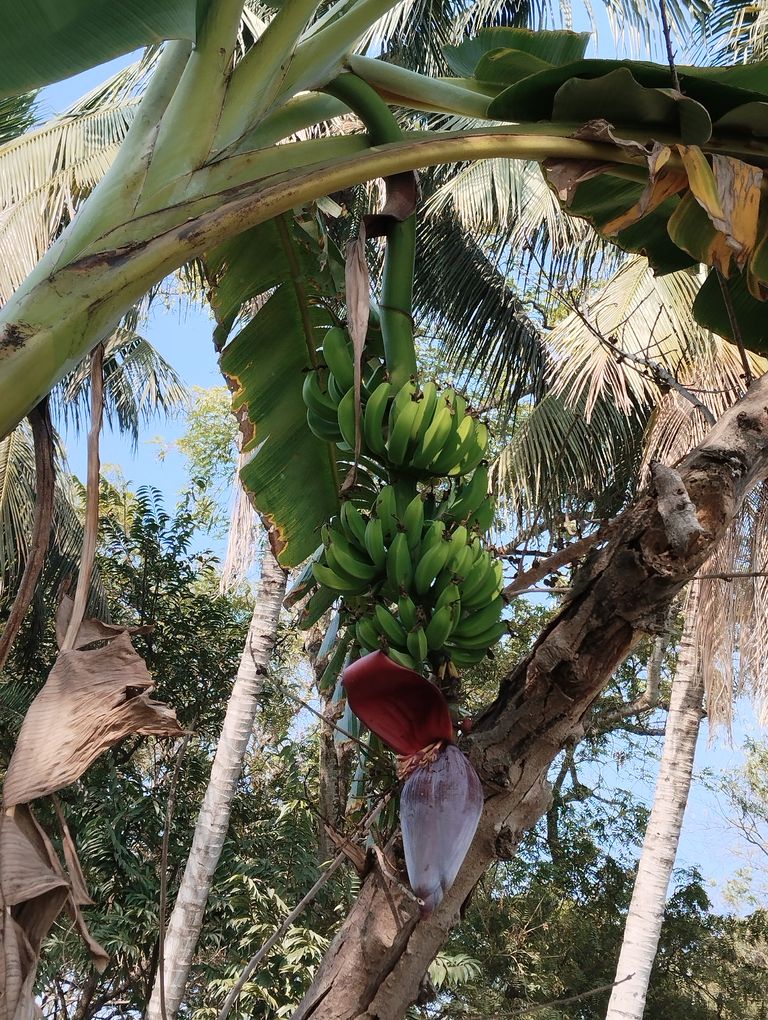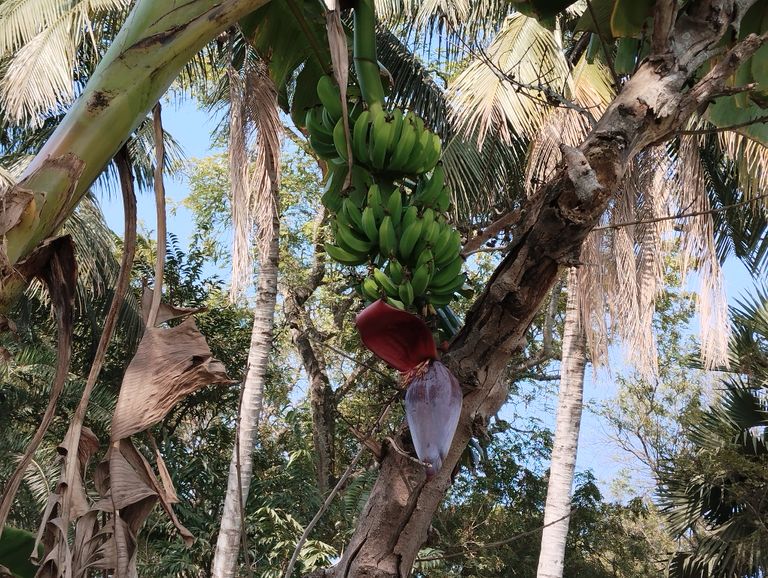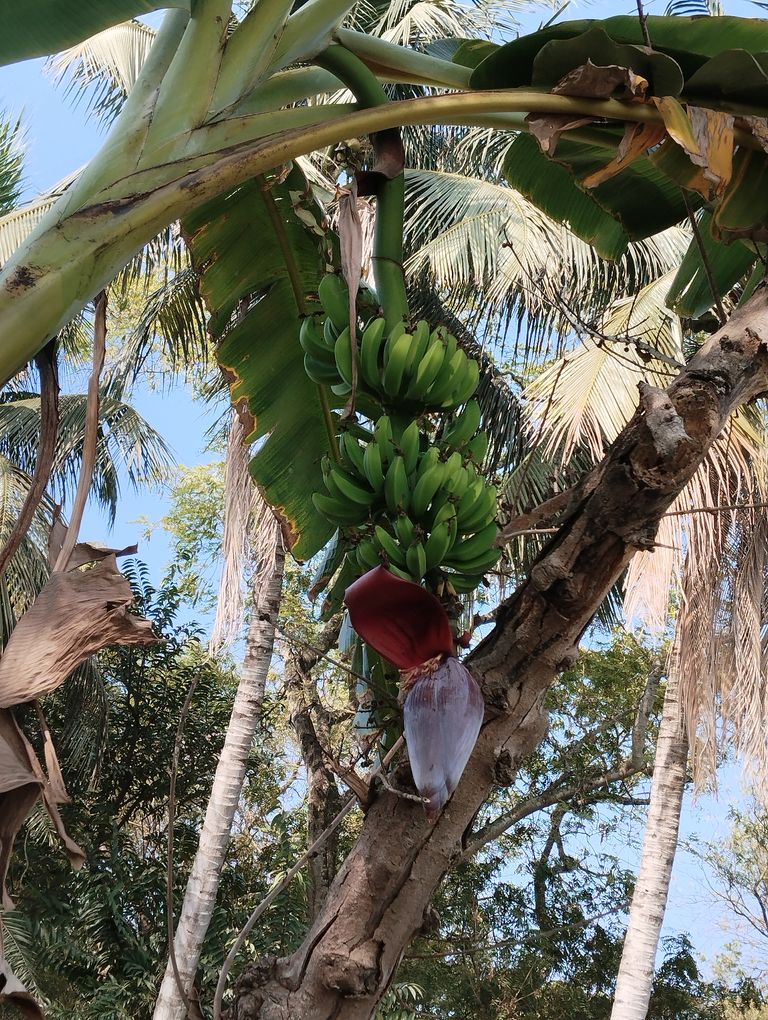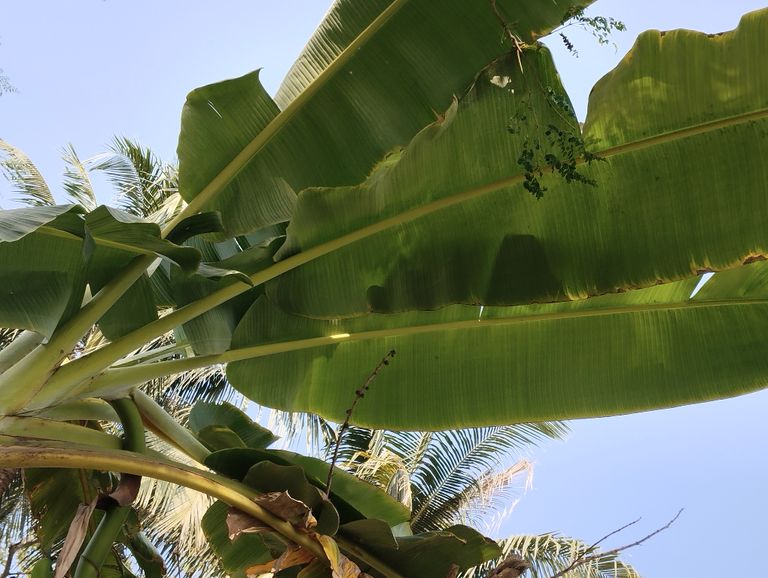
Comprehensive Guide to Banana Cultivation.
Bananas are one of the most widely consumed fruits globally, known for their high nutritional value and easy accessibility. With increasing demand, banana cultivation has become a profitable agricultural practice. This blog will guide you through the essentials of banana farming, including climate requirements, soil preparation, planting, and care.
Introduction to Banana Farming
Banana farming is an essential livelihood for millions worldwide. It requires moderate effort but offers significant economic benefits. Bananas belong to the genus Musa and thrive in tropical and subtropical regions. With proper planning and maintenance, banana cultivation can provide a steady income throughout the year.
Climatic Requirements for Banana Cultivation
Bananas require a warm and humid climate to thrive. Here are the key climatic factors to consider:
Temperature: Optimal temperature ranges between 25°C and 35°C. Temperatures below 10°C or above 40°C can hinder growth.
Rainfall: Bananas need 1000–2000 mm of rainfall annually. Irrigation can supplement areas with insufficient rainfall.
Humidity: High humidity levels (75-85%) are ideal for robust growth.
Sunlight: Bananas need 10-12 hours of sunlight daily for optimum yield.
Soil Requirements
Bananas thrive in well-drained, fertile soils rich in organic matter. Key soil considerations include:
Soil Type: Loamy soil with a pH of 6.0–7.5 is ideal.
Drainage: Proper drainage is essential to prevent waterlogging.
Fertility: Enrich the soil with organic manure or compost before planting.
Land Preparation
Proper land preparation ensures healthy crop growth and minimizes pest infestations. Steps include:
- Clearing: Remove weeds and debris from the field.
- Plowing: Deep plowing ensures proper aeration and water retention.
- Leveling: Level the land to avoid waterlogging during irrigation.
Varieties of Bananas
Choosing the right banana variety is crucial for successful cultivation. Common varieties include:
Cavendish: Popular for commercial farming due to its high yield and demand.
Robusta: Known for its drought resistance and robust growth.
Dwarf Banana: Suitable for small-scale cultivation and urban farming.
Planting Method
Bananas are propagated using suckers (offshoots) or tissue culture. Steps for planting include:
- Spacing: Maintain a spacing of 2-3 meters between plants to allow proper growth.
- Pit Preparation: Dig pits of 60 cm x 60 cm x 60 cm and fill them with organic manure and soil.
- Planting: Place the sucker or tissue-cultured plantlet in the pit and cover it with soil.
Irrigation Requirements
Bananas need consistent moisture for optimal growth. Key irrigation tips include:
Irrigate the crop immediately after planting.
During summer, irrigate every 3-4 days.
Reduce irrigation frequency during the rainy season.
Fertilizer Application
Bananas are heavy feeders and require adequate nutrition. Fertilization schedule:
Organic Manure: Apply 10-15 kg of well-decomposed cow dung per plant.
Chemical Fertilizers: Use nitrogen, phosphorus, and potassium (NPK) in a ratio of 3:1:6.
Apply fertilizers at different growth stages for maximum yield.
Pest and Disease Management
Common pests and diseases affecting banana plants include:
Pests: Nematodes, banana weevils, and aphids.
Use organic pesticides or biological controls.
Diseases: Fusarium wilt, bacterial wilt, and leaf spot.
Use resistant varieties and ensure proper drainage.
Harvesting and Post-Harvest Management
Bananas are typically ready for harvest 12-15 months after planting. Steps for harvesting include:
- Maturity: Harvest when the fruits are green and fully developed.
- Cutting: Use a sharp knife to cut the bunch, avoiding damage to the plant.
- Post-Harvest Care: Wash and pack bananas carefully to prevent bruising.
Economic Benefits of Banana Cultivation
High Yield: An acre of banana plantation can yield 20-40 tons annually.
Steady Income: Banana plants produce fruit year-round, ensuring consistent earnings.
By-Products: Banana stems and leaves can be used for making fiber, paper, and plates.
Sustainability in Banana Farming
To ensure long-term sustainability:
Practice crop rotation to maintain soil fertility.
Use organic fertilizers and avoid chemical overuse.
Opt for disease-resistant and high-yielding varieties.
Banana cultivation is a rewarding venture for farmers when managed correctly. By following the above guidelines, you can maximize yields, ensure crop health, and achieve economic success. Start your banana farming journey today and contribute to the growing demand for this versatile fruit.

How to Ripen Bananas Quickly: A Complete Guide
Bananas are one of the most versatile and loved fruits worldwide. While many prefer eating them ripe and sweet, waiting for green bananas to naturally ripen can test your patience. Fortunately, there are several techniques to speed up the ripening process. In this blog, we’ll explore natural methods, quick tricks, and tips to ensure perfectly ripened bananas for your recipes or snacks.
Understanding the Ripening Process
Bananas ripen due to the release of a natural plant hormone called ethylene. This gas accelerates the conversion of starches into sugars, making the fruit soft and sweet. Factors like temperature, air circulation, and the presence of other ethylene-producing fruits can influence how quickly bananas ripen.
Methods to Ripen Bananas
- Use a Paper Bag
The easiest way to ripen bananas is to trap ethylene gas around them.
Steps:
Place the bananas in a paper bag.
Add an ethylene-producing fruit like an apple or avocado to the bag.
Fold the bag loosely to maintain airflow while trapping the gas.
Check the bananas daily. They should ripen in 1-2 days.
Why It Works: The confined space increases ethylene concentration, speeding up the ripening process.
- Ripen in a Warm Place
Temperature plays a significant role in ripening bananas.
Steps:
Place the bananas near a heat source, like the top of a refrigerator or a sunny windowsill.
Ensure they are not exposed to direct sunlight for too long, as it might cause uneven ripening.
Timeframe: This method takes 1-3 days.
- Bake the Bananas
If you need ripe bananas immediately for baking, this method is perfect.
Steps:
Preheat your oven to 300°F (150°C).
Place unpeeled bananas on a baking sheet lined with foil.
Bake for 15-20 minutes or until the skin turns black.
Let them cool before using.
Note: The heat caramelizes the sugars, making the bananas soft and sweet.
- Microwave Trick
For a quick fix, the microwave can soften bananas in seconds.
Steps:
Poke small holes in the banana peel using a fork or toothpick to allow steam to escape.
Microwave for 30 seconds to 1 minute, depending on the banana’s size and ripeness.
Caution: Let the banana cool before handling, as it can be hot inside.
- Store with Ripe Bananas
If you have a few ripe bananas, place them alongside green ones.
Why It Works: Ripe bananas release ethylene, which helps green bananas ripen faster.
Tips for Better Results
Avoid Refrigeration: Green bananas do not ripen well in the refrigerator. Cold temperatures slow down the ripening process.
Monitor Daily: Check the bananas regularly to ensure they don’t overripen.
Handle with Care: Overhandling can bruise bananas, which may lead to uneven ripening.
Using Ripe Bananas
Once your bananas are perfectly ripe, there are countless ways to enjoy them:
Snacks: Eat them plain or with peanut butter.
Desserts: Use them in banana bread, smoothies, or pancakes.
Frozen Treats: Peel and freeze them for a refreshing snack or as a base for ice cream.
Ripening bananas doesn’t have to be a waiting game. With these simple tricks, you can control the ripening process and enjoy bananas whenever you need them. Whether for a snack or a recipe, perfectly ripe bananas are just a few steps away.


Health Benefits of Eating Ripe Bananas
Bananas are one of the most popular and nutritious fruits globally. Among their various forms, ripe bananas are particularly beneficial for health. Packed with essential vitamins, minerals, and fiber, ripe bananas are a natural source of energy and play a significant role in improving overall well-being. Let’s explore the numerous advantages of eating ripe bananas in detail.
- Rich in Nutrients
Ripe bananas are an excellent source of essential nutrients such as:
Vitamins: Ripe bananas are rich in vitamin C, vitamin B6, and folate, which contribute to immune function, brain health, and red blood cell production.
Minerals: They contain potassium, magnesium, and manganese, which are vital for muscle function, bone health, and maintaining electrolyte balance.
Dietary Fiber: The high fiber content aids in digestion and promotes a healthy gut.
- Supports Digestion
One of the key benefits of ripe bananas is their ability to support a healthy digestive system:
Natural Antacid: They act as a natural antacid, reducing the risk of acidity and heartburn.
Eases Bowel Movements: The soluble fiber in ripe bananas helps prevent constipation and promotes smooth bowel movements.
Prebiotics: Ripe bananas contain fructooligosaccharides, a prebiotic that promotes the growth of beneficial gut bacteria.
- Boosts Energy
Ripe bananas are a great energy booster, making them ideal for athletes or anyone needing a quick energy recharge:
Natural Sugars: They contain natural sugars like glucose, fructose, and sucrose, which provide instant energy.
Low Glycemic Index: Despite their sweetness, they have a low glycemic index, ensuring a steady energy release without causing sugar spikes.
- Improves Heart Health
Bananas are beneficial for maintaining cardiovascular health:
Rich in Potassium: Potassium helps regulate blood pressure by counteracting the effects of sodium.
Reduces Risk of Heart Disease: The fiber, vitamin C, and antioxidants in ripe bananas contribute to heart health by reducing cholesterol levels.
- Enhances Mood and Reduces Stress
Eating ripe bananas can uplift your mood and alleviate stress:
Rich in Tryptophan: Tryptophan, an amino acid in bananas, gets converted into serotonin, the “feel-good” hormone.
Boosts Mental Health: Vitamin B6 helps regulate brain function and may reduce symptoms of anxiety and depression.
- Strengthens Immunity
Ripe bananas play a role in boosting immunity, thanks to their nutrient content:
Vitamin C: Strengthens the immune system and helps fight infections.
Antioxidants: Protect the body from free radical damage and reduce inflammation.
- Supports Weight Management
Ripe bananas can be a part of a healthy weight management plan:
Low in Calories: A medium-sized ripe banana contains only about 105 calories, making it a guilt-free snack.
Satiety Factor: The fiber content keeps you full for longer, reducing the chances of overeating.
- Promotes Healthy Skin
Bananas can enhance your skin’s health from the inside out:
Hydration: Their high water content helps keep the skin hydrated.
Vitamin C and Antioxidants: Promote collagen production, reducing wrinkles and fine lines.
- Natural Remedy for Anemia
Ripe bananas can help combat anemia due to their iron content:
Iron-Rich: Boosts hemoglobin production.
Vitamin B6: Aids in red blood cell formation, essential for preventing anemia.
- Supports Bone Health
Bananas contribute to stronger bones:
Magnesium: Helps in calcium absorption, promoting bone density.
Manganese: Plays a role in bone development and maintenance.
How to Include Ripe Bananas in Your Diet
Here are some simple and delicious ways to enjoy ripe bananas:
As a Snack: Eat them raw as a quick and nutritious snack.
Smoothies: Blend ripe bananas with milk, yogurt, or other fruits for a creamy smoothie.
Breakfast: Add them to oatmeal, cereal, or pancakes for a sweet and healthy start to your day.
Desserts: Use them in baking, such as banana bread or muffins.
Ripe bananas are not just a tasty treat but a powerhouse of nutrition. From improving digestion to boosting heart health, they offer a plethora of health benefits. Including ripe bananas in your daily diet can enhance your overall well-being while providing an instant energy boost. Whether eaten raw or incorporated into recipes, this humble fruit is a must-have for a healthy lifestyle.

Health Benefits of Eating Ripe Bananas
Bananas are one of the most popular and nutritious fruits globally. Among their various forms, ripe bananas are particularly beneficial for health. Packed with essential vitamins, minerals, and fiber, ripe bananas are a natural source of energy and play a significant role in improving overall well-being. Let’s explore the numerous advantages of eating ripe bananas in detail.
- Rich in Nutrients
Ripe bananas are an excellent source of essential nutrients such as:
Vitamins: Ripe bananas are rich in vitamin C, vitamin B6, and folate, which contribute to immune function, brain health, and red blood cell production.
Minerals: They contain potassium, magnesium, and manganese, which are vital for muscle function, bone health, and maintaining electrolyte balance.
Dietary Fiber: The high fiber content aids in digestion and promotes a healthy gut.
- Supports Digestion
One of the key benefits of ripe bananas is their ability to support a healthy digestive system:
Natural Antacid: They act as a natural antacid, reducing the risk of acidity and heartburn.
Eases Bowel Movements: The soluble fiber in ripe bananas helps prevent constipation and promotes smooth bowel movements.
Prebiotics: Ripe bananas contain fructooligosaccharides, a prebiotic that promotes the growth of beneficial gut bacteria.
- Boosts Energy
Ripe bananas are a great energy booster, making them ideal for athletes or anyone needing a quick energy recharge:
Natural Sugars: They contain natural sugars like glucose, fructose, and sucrose, which provide instant energy.
Low Glycemic Index: Despite their sweetness, they have a low glycemic index, ensuring a steady energy release without causing sugar spikes.
- Improves Heart Health
Bananas are beneficial for maintaining cardiovascular health:
Rich in Potassium: Potassium helps regulate blood pressure by counteracting the effects of sodium.
Reduces Risk of Heart Disease: The fiber, vitamin C, and antioxidants in ripe bananas contribute to heart health by reducing cholesterol levels.
- Enhances Mood and Reduces Stress
Eating ripe bananas can uplift your mood and alleviate stress:
Rich in Tryptophan: Tryptophan, an amino acid in bananas, gets converted into serotonin, the “feel-good” hormone.
Boosts Mental Health: Vitamin B6 helps regulate brain function and may reduce symptoms of anxiety and depression.
- Strengthens Immunity
Ripe bananas play a role in boosting immunity, thanks to their nutrient content:
Vitamin C: Strengthens the immune system and helps fight infections.
Antioxidants: Protect the body from free radical damage and reduce inflammation.
- Supports Weight Management
Ripe bananas can be a part of a healthy weight management plan:
Low in Calories: A medium-sized ripe banana contains only about 105 calories, making it a guilt-free snack.
Satiety Factor: The fiber content keeps you full for longer, reducing the chances of overeating.
- Promotes Healthy Skin
Bananas can enhance your skin’s health from the inside out:
Hydration: Their high water content helps keep the skin hydrated.
Vitamin C and Antioxidants: Promote collagen production, reducing wrinkles and fine lines.
- Natural Remedy for Anemia
Ripe bananas can help combat anemia due to their iron content:
Iron-Rich: Boosts hemoglobin production.
Vitamin B6: Aids in red blood cell formation, essential for preventing anemia.
- Supports Bone Health
Bananas contribute to stronger bones:
Magnesium: Helps in calcium absorption, promoting bone density.
Manganese: Plays a role in bone development and maintenance.
How to Include Ripe Bananas in Your Diet
Here are some simple and delicious ways to enjoy ripe bananas:
As a Snack: Eat them raw as a quick and nutritious snack.
Smoothies: Blend ripe bananas with milk, yogurt, or other fruits for a creamy smoothie.
Breakfast: Add them to oatmeal, cereal, or pancakes for a sweet and healthy start to your day.
Desserts: Use them in baking, such as banana bread or muffins.
Ripe bananas are not just a tasty treat but a powerhouse of nutrition. From improving digestion to boosting heart health, they offer a plethora of health benefits. Including ripe bananas in your daily diet can enhance your overall well-being while providing an instant energy boost. Whether eaten raw or incorporated into recipes, this humble fruit is a must-have for a healthy lifestyle.
One of my favorite fruits! This is valuable information. Thanks for sharing!
My father and I have planted many banana trees and some did make bananas, but unfortunately many of the hurricanes we've been having here didn't help the rest of them very much. We'll probably plant more somewhere else at some point. Thanks again, I learned something new today to do better! :) 💪
Thanks for comment.